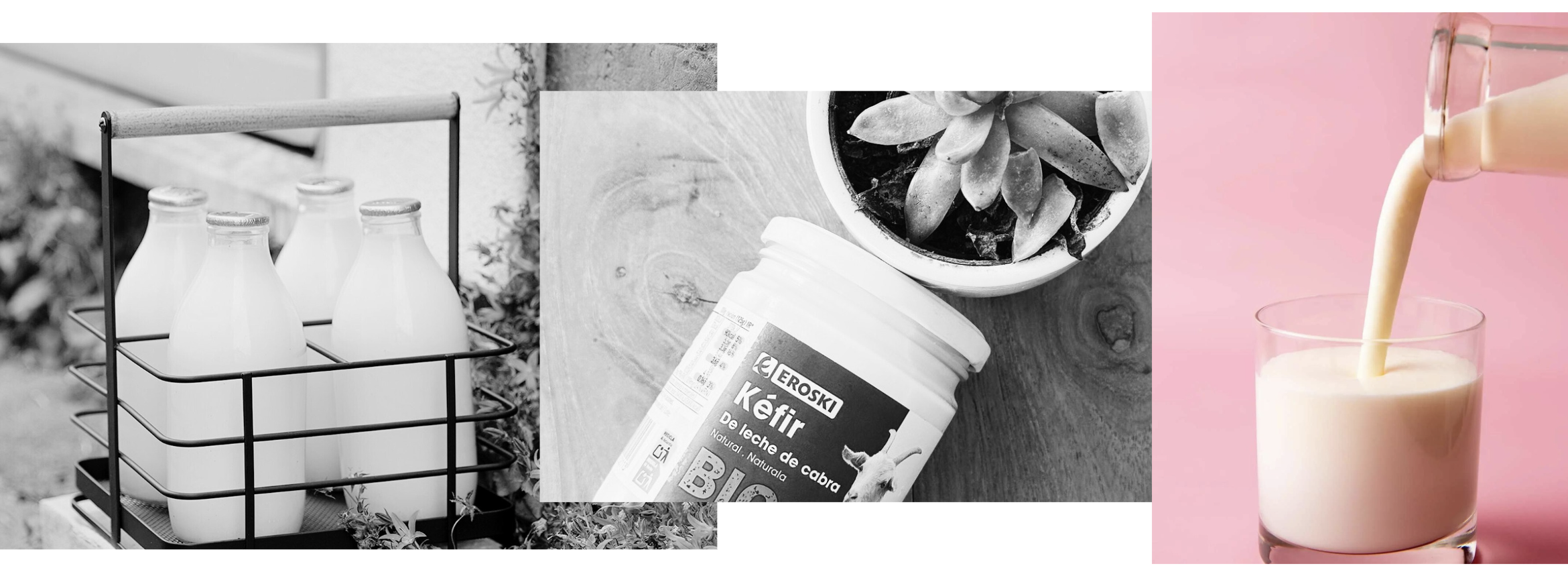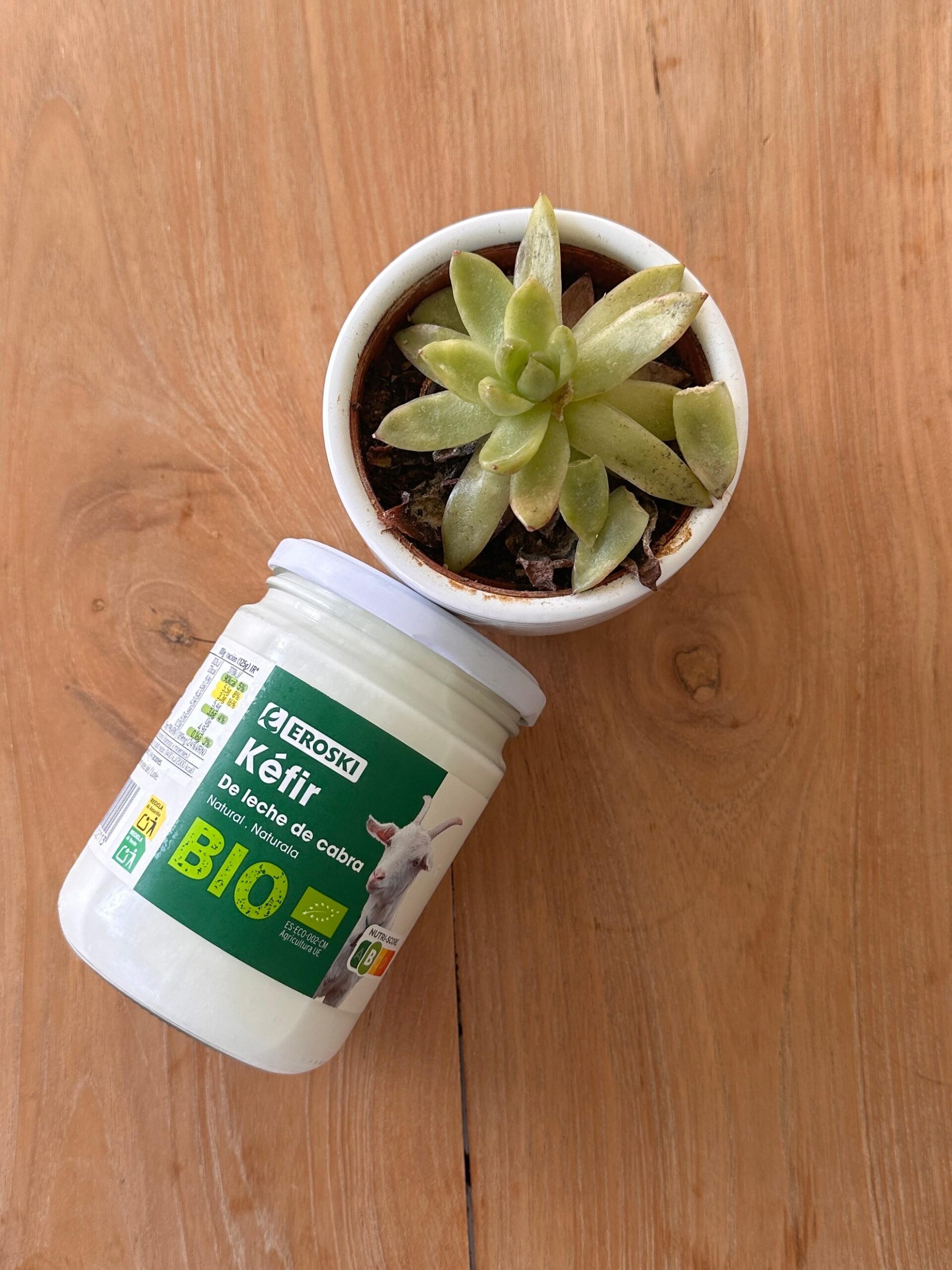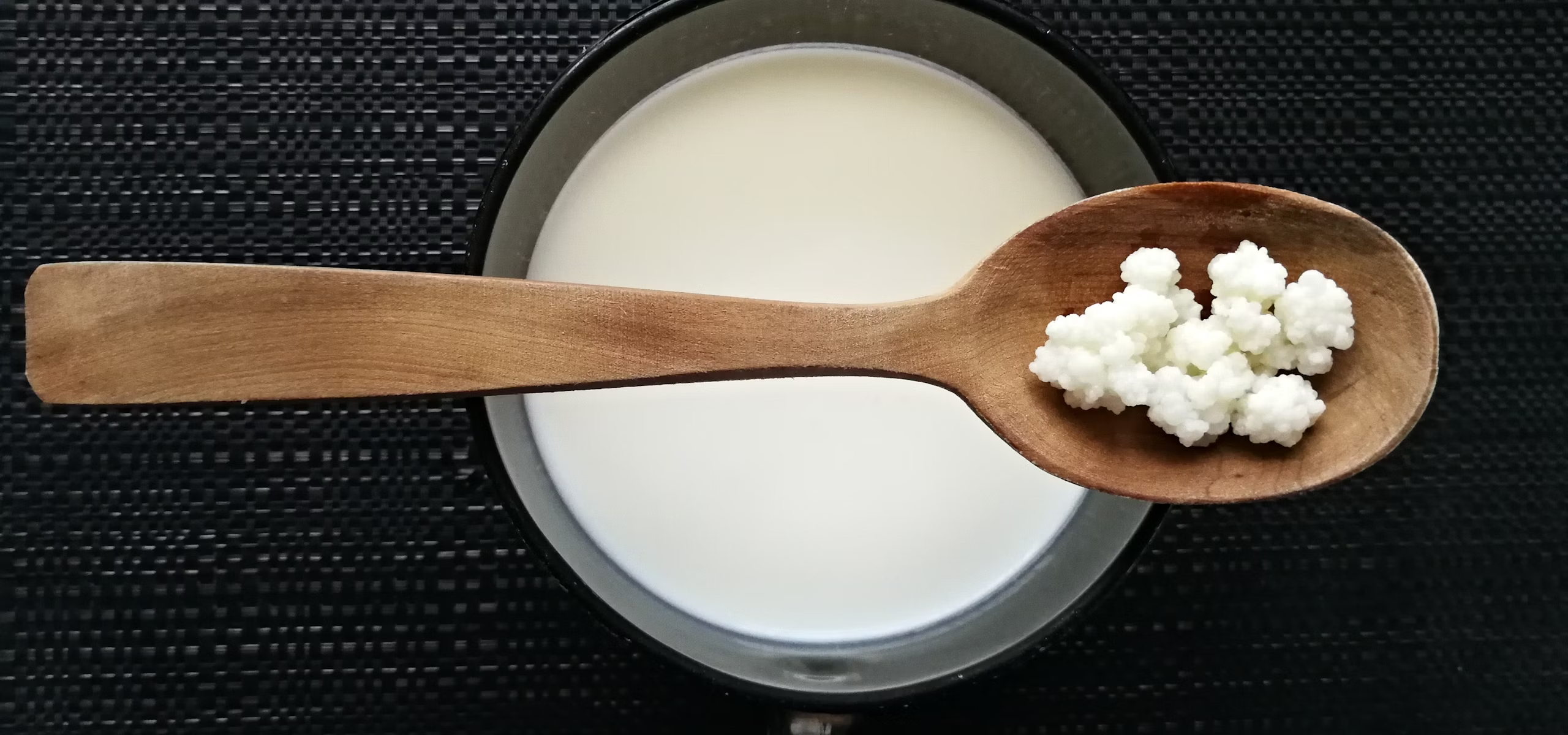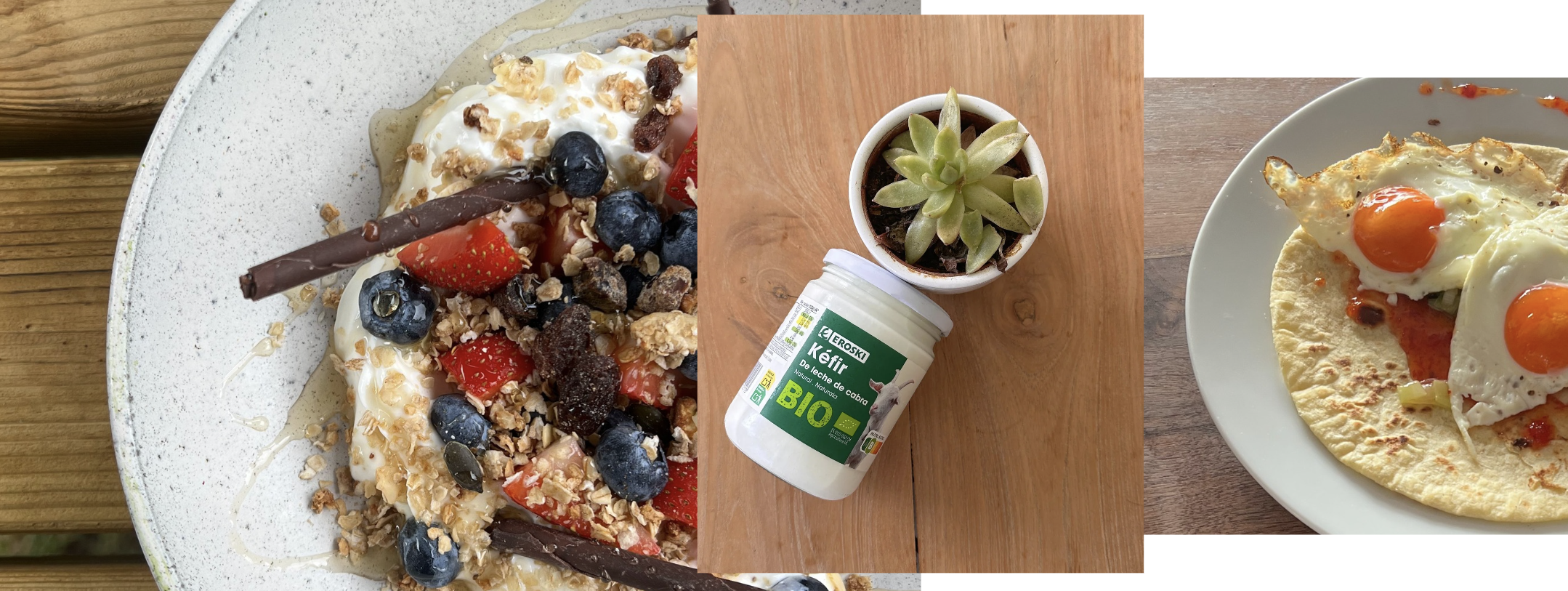
THE WHY
/
Food Trend: Kefir
Why Is Everybody Talking About Kefir?
Kefir has been a bit of a buzz-word in the nutrition world.
If your friend has tried it and recommended it to you, you’ve probably heard the words “Yeah, so it doesn’t taste great, but after a week you’ll start to enjoy it”.
A no pain no gain mentality.
Kefir isn’t new, it’s been around for thousands of years, originating in the mountains of Russia, Tibet and Mongolia.
Kefir is a fermented milk; made from naturally occurring bacteria, yeasts and other microorganisms called kefir “grains.”
Probiotics are healthy bacteria that do good things for your body.
Kefir is packed with these (more than other yoghurts and milks).
Kefir also contains lots of vitamins and minerals; as does yoghurt but because of the bacteria in the kefir, they become more easily absorbed by your body.
Kefir has a ‘no pain, no gain’ mentality to it.


HEALTH BENEFITS
-Improved cholesterol
-Blood sugar control
-Gut health
-reputation for helping *weight loss
It is so far (thankfully) impossible to produce kefir grains artificially.
This means that the grains used today to make kefir are direct descendants of those made in the mountains of outer Mongolia.
Slight exaggeration, but it is the same bacteria as when first discovered thousands of years ago.

“It’s currently impossible to produce artificial kefir grains”

KEY FACTS
1. Fermentation is a process where microorganisms turn food into chemicals, changing the flavour and creating healthy nutrients.
2. Some kefir products use extracted bacteria and yeasts rather than the whole kefir grain, reducing the number and diversity of the probiotics.
3. Water kefir is a great vegan option, it has different probiotics than milk kefir and doesn’t contain the protein that comes from the dairy in milk.
4. “Live” yoghurts do contain probiotics but kefir made from kefir grains has a much more diverse range — around 300 different species — including some that are only present in kefir.

TYPICAL KEFIR NUTRIENTS
145 kcal
8.3g protein
7.5g fat
11g carbs
333mg calcium
28mg magnesium
383mg potassium
0.7mcg B12
A BIT OF SCIENCE
Probiotics (that kefir is full of) are definitely good at lowering the overall “bad” LDL cholesterol, however there is no Scientific evidence yet that proves kefir specifically does this.
In one study, people with Type 2 diabetes were given kefir instead of milk and they did see a decrease in their blood sugar levels. This shows that kefir could benefit people who already have diabetes as well as being beneficial to anyone to lower their blood sugar levels.

TRY IT
- with fruit
- in a smoothie
- with oats
- in salad dressings
- to make flatbreads


We Would Love To Hear From You
Any delicious whole foods recipes you’d like to share?
Are you a nutritionist and could add to our article?
Contact: clare@thewellnest.club



